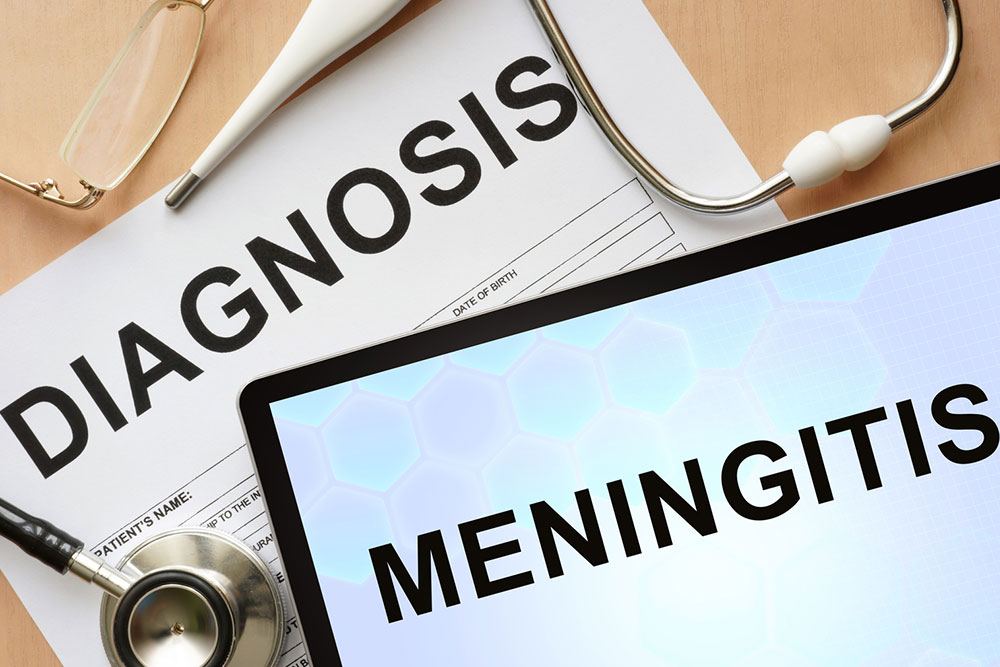Signs and Symptoms of Meningitis in Children and Adults

Meningitis is a clinical term used to describe an inflammation or swelling of the membranes that surround the brain. Meningitis, especially the type caused by bacteria, is a potentially fatal condition that can rapidly transform to cause permanent brain damage, neurological problems, and can even lead to death. Doctors are required to diagnose and treat meningitis at a fast pace to prevent or reduce any long-term effects that the disease might have. Meningitis which causes inflammation is normally a direct consequence of either an infection induced by some kind of bacteria or virus. But first, it is essential to understand the signs of meningitis for early diagnosis.
Some common symptoms of meningitis
Normally, meningitis has symptoms like fever, lethargy or indolence, and a decreased ability to think properly. However, these symptoms are often very difficult to detect in children of a very young age. If the infection or resulting inflammation moves from the membranes of the brain or the spinal cord, then the medical term used for it is encephalitis. According to a survey, meningitis mostly occurs when a child is a newborn and till he is two years of age. The greatest risk is during the time period immediately after birth and from three to eight months of age. Increased exposure to various kinds of infections and a deficiency of the underlying immune system present from birth can increase an infant’s risk of getting meningitis.
Specific symptoms for meningitis in children
For the particular case of infants, the signs and symptoms of meningitis are not always obvious to the non-critical eye of the parent because of the infant’s inability to communicate symptoms to them, or to the doctors, for that matter. Therefore, caregivers, parents, relatives or guardians must pay very close attention to the infant’s overall condition, as far as meningitis symptoms in children are concerned. The following is a list of possible symptoms seen in infants or children who might be suffering from the most common type of meningitis, bacterial:
Some very common and rudimentary symptoms of meningitis in infants younger than three months of age may include:
- Decreased liquid intake or poor eating habit. This is something which majorly goes unnoticed, and often thought of as the whim of the baby
- Vomiting
- Rashes occurring in unusual places. This is the most prompt of all the symptoms as skin rashes are more often harmful than not.
- Increased irritability throughout the body
- Increased lethargy
- Fever, especially high fever sustained for a very long period of time can be indicative of this disease
- Seizure activity
- Hypothermia or the yellowing of the skin
- Shock
Symptoms in older infants
Some classic signs of meningitis in children older than one year of age are as follows:
- Nausea and vomiting
- A headache, especially prolonged periods of time
- Increased sensitivity to sunlight and the skin starting to swell when exposed to too much of sunlight
- Fever
- Knees of the patient are brought up, on their own, towards the body when the neck is bent forward, or there is an immense pain in the legs when they are bent. In medical terms, this is called the Brudzinski sign.
- The infant might face an inability to straighten the lower legs after the hips have already been flexed to full ninety degrees. This is called the Kernig sign.
- Rash
Symptoms in adults
Adults can also show some pretty discernable signs of meningitis. A recently concluded survey says that about 25 percent of those who develop meningitis have symptoms that develop over a period of a single day. The remaining people generally become ill over a time period of one to seven days. Occasionally, if a particular patient has been consuming antibiotics for another infection, the symptoms can take a little bit longer to develop or may be less intense, depending on the medicines being consumed.
- Classic signs of meningitis in adults are a few of the following
- A headache is quite common
- Stiff neck occurs in a majority of people who suffer from meningitis
- Fever and chills
- Vomiting, especially recurring bouts of them
- Extreme sensitivity to bright light, most importantly that of the sun, and it is defined as photophobia
- Confusion
- Seizures
- Drowsiness
Some of the less known symptoms are as follows:
- Localized weakness in certain parts of the body or loss of strength or sensation, especially on the face of the patient
- Swelling and pain in the joints
- A new rash that often looks like simple or tiny red spots all over the skin
Thus, many of the symptoms are common to both adults and children and everyone should keep an eye out for them so that they can take necessary steps in time.